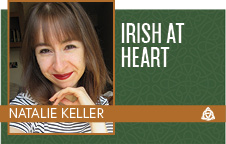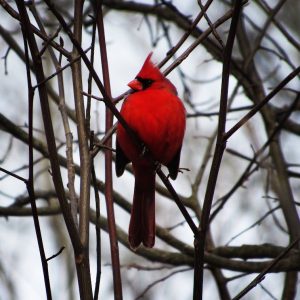
Irish at Heart: The Photographer’s Handbook
By Natalie Keller
When I am traveling — whether to another state, country, or somewhere close to home — one tried-and-true object always hangs around my neck: my Canon PowerShot SX520. I rarely go anywhere without it, and its weight often results in neck cramps that I take in stride. Because unless there’s a camera in my hands, allowing me to zoom, focus, and study my surroundings, I feel blind.
People often scoff at selfie-stick-wielding tourists and sightseers who snap a thousand pictures to post on their social media later, because they aren’t “living in the present” or “soaking it all in.” But for me, photography is the exact opposite of a distraction: it’s an immersion — an intimate, engaged way of interacting with the world that forces me to slow my pace and pay attention to miniscule details that others might hurry past.
It allows me to scrutinize the colors of a butterfly’s wing, the curvature of a distant mountain, or the tiny flecks of pollen on a bumblebee’s belly. By focusing on the small, my world grows large, and I am rewarded for my attentiveness with secret, fleeting beauty.
I’ve taken tens of thousands of pictures in my life, but only a handful of perfect ones. Those are the result of curiosity, persistence, and luck: a moment when the lighting is just right, and the cardinal I’ve been tracking for thirty minutes finally strikes a pose, and my finger snaps the button a millisecond before she  flies to the next branch. Much of the time, the shot is blurry, too dark, or off-center — but once in a great while, every couple years, I get one that is incandescently perfect. As American photographer Ansel Adams said, “Sometimes I arrive just when God’s ready to have someone click the shutter.”
flies to the next branch. Much of the time, the shot is blurry, too dark, or off-center — but once in a great while, every couple years, I get one that is incandescently perfect. As American photographer Ansel Adams said, “Sometimes I arrive just when God’s ready to have someone click the shutter.”
As such, photography is a hobby that rarely “pays off” in the usual sense: for every great picture I’ve taken, there are a hundred flawed ones. And yet, it is one of my most beloved hobbies. For all its trickiness, photography is rewarding in the way it can transform your perspective and enhance your travels. If you’re interested in any kind of photography — be it travel photography, nature photography, or just day-to-day picture taking — here are the best pieces of advice on the craft, straight from the masters.
Invest in Good Shoes
“It’s more important for a photographer to have very good shoes, than to have a very good camera.” — Brazilian photojournalist Sebastiao Salgado
In my years of traveling and photographing, there’s been no greater truth. I don’t have the most expensive camera, nor have I ever taken a photography class — but man, have I walked. I’ve climbed mountains in my hiking boots and trekked the edge of cliffs in my athletic shoes so I can stand on the precipice with my camera pointed at the open sky.
There are layers to this piece of advice: it’s not simply about your shoes — it’s about going places in them. Half the work (and magic) of photography is wandering, exploring, and stumbling upon photo-worthy moments. Photographers are never homebodies: you’ll soon run out of things to take pictures of in your house, and that’s when you’ll need to step outside the door and go somewhere new.
The majesty of America’s National Parks or the rugged scenery of Ireland have certainly inspired some of my best pictures. Sometimes, though, your best shot is waiting in your backyard. Put on your shoes and go see it.
Shoot What It Feels Like
“Don’t shoot what it looks like. Shoot what it feels like.”
― American photographer David Alan Harvey
This is a piece of advice I live and breathe by. My photographs are, in many ways, a documentary of my life: they record and preserve memories that are otherwise gone.
They are windows to the past, and when I peer into them, I am once again walking across the Charles Bridge in Prague, or drinking hot chocolate on a ferry across Loch Lomond, or reading Game of Thrones on a Cyprus beach overlooking Aphrodite’s Rock.
My photos with the clearest “windows” are the ones that capture what it feels like to be there. I often achieve this by foregrounding objects in the scenery, such as a sandwich I’m eating while overlooking the Cliffs of Moher, the book I’m reading by the seashore, or a physical window that frames the foggy morning view from my bedroom when I wake up in the Scottish Highlands.
These objects infuse action, energy, and personalization into my photographs — they are distinctly mine. Many people can take the same picture of a landscape, but you might be the only one reading Game of Thrones there. So, make your shots unique and memorable with your signature flair, stamped with your one-of-a-kind experience.
Stare, Pry, Listen
“Stare. It is the way to educate your eye, and more. Stare, pry, listen, eavesdrop. Die knowing something. You are not here long.” — American photojournalist Walker Evans
When you travel somewhere new, remember, this might be your first and last time in this place. As a photographer, that realization is both terrifying and empowering. Evans reminds us to pay radical attention to the world — to stare, pry, and listen.
Having a camera in your hand is a free pass to be curious, so investigate your environment. Pay attention to strangers and ask them questions. Listen for the bird’s call so that you can find the bird itself.
Spend an hour perched on a castle wall waiting for the ripest moment of sunset. You might never be here again, so make it count.
A Way of Life
“Travel photography is really a way of life: a way of traveling.”
– British travel photographer Steve Davey
Photography, like fishing, is a waiting game. The most successful among us, who reel in the biggest catches, have mastered the art of meditation while waiting for that tug on the string. Half the fun is in the waiting, kicking your boat out onto the water while you look at the sky and listen to the wind through the trees. And every once in a while, a moment bites.
I firmly believe that my Canon PowerShot has made me a better traveler and a more attentive human being. Your camera can teach you equally as much about the art of life as it can the craft of photography: how to be patient, how to pay attention, and how to savor it.
*Natalie Keller is a former resident of Galway, Ireland and works in the world of libraries. Her poetry and fiction have appeared in various online platforms, including Mirror Dance, Asymmetry Fiction, and The Peace Chronicle. She loves to hear from readers at [email protected].

Monthly newsmagazine serving people of Irish descent from Cleveland to Clearwater. We cover the movers, shakers & music makers each and every month.
Since our 2006 inception, iIrish has donated more than $376,000 to local and national charities.
GET UPDATES ON THE SERIOUS & THE SHENANIGANS!